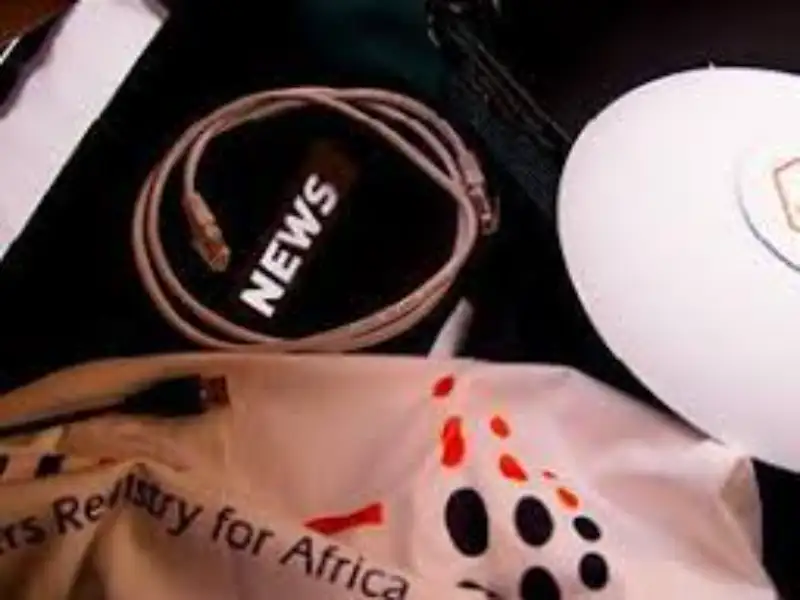- The Mauritian Ministry of ICT and police paused Afrinic’s private board election despite court oversight.
- Experts caution that the intervention may set a troubling precedent for government power over private entities.
In the recent AFRINIC elections, that were meant to re-establish a functioning board for the Regional Internet Registry, there was a notable intervention by a usually quiet actor – the Mauritian Ministry of Information, Communications and Technology (ICT).
This intervention by a public body in a privately organised election that was ordered by the Supreme Court is unprecedented, and raises questions about why this happened, and what the impact might be.
Timeline of ministry involvement
The African Network Information Centre (Afrinic) scheduled its board election for 23 June 2025 under court-appointed supervision. This vote was intended to resolve a governance vacuum affecting its ability to allocate IP resources across Africa. Soon after voting began, the Mauritian Ministry of ICT and national police intervened, citing allegations of a single invalid proxy vote. They formally reached out to AFRINIC and commenced an investigation, prompting an immediate suspension of vote counting.
Immediately the questions started – why should a single uncharted vote cause the cancellation of an entire election? Hundreds of other votes, legitimately and legally filed, were vetoed due to this one instance. What was going on?
Five days later, the court-appointed receiver, Gowtamsingh Dabee, officially nullified the election. The Supreme Court then granted until 30 September 2025 to conduct a fresh vote under heightened scrutiny.
Legal analysis: Can the state cancel a private election?
Afrinic is structured as a private company limited by guarantee under Mauritius law. Its bylaws define that elections should be managed by internal committees, including Nomination and Election Committees independent of state control. Normally, courts can only revoke corporate elections if there is evidence of fraud, coercion or non-compliance with statutory procedures.
In this case, the ministry’s justification focuses on “major irregularities” in proxy documentation—though the essential question remains: did it step beyond its authority? Legal experts say that, under Mauritian insolvency provisions, the court-appointed receiver holds the discretion to call off elections. But the ministry’s direct pressure raises concerns about political encroachment into corporate autonomy.
Interviews with constitutional and business law experts
Professor Anjalie Kumar, a constitutional lawyer at the University of Mauritius, observes: “The ministry may have acted under duty to enforce legal integrity. However, any public body must respect private company mechanisms unless the court directs otherwise.” She stresses that ministry involvement without explicit court instruction can blur the boundary between public oversight and private governance.
Similarly, Dr François Allen from the African Institute of Corporate Law notes: “Company law clearly reserves election processes for internal committees, not public bodies. If proxy fraud is alleged, the receiver and courts are empowered—but the ministry lacks unilateral authority.”
Reaction from court, stakeholders and the tech community
The Supreme Court, when approached by AFRINIC’s receiver, granted an extension through 30 September and endorsed the annulment. It did not directly rebuke the ministry, but affirmed that election governance remains under judicial oversight.
Stakeholder groups, including ISPA South Africa, called for full transparency and criminal inquiry into proxy misuse . ICANN issued a stern warning that AFRINIC faces an ICP‑2 compliance review if it does not deliver a verifiable and fair election process.
Within the tech community, concern is growing that government intervention might open the door to politicisation of internet governance on the continent—a worry echoed by commentators on NRS, describing past proxy manipulation and now praising the potential for reforms.
Broader concerns about state overreach
AFRINIC’s case highlights a tension between state duty and institutional autonomy. Registered as a private company, it operates within corporate law. But its national headquarters and public importance may lend justification for ministry intervention.
Still, African internet governance relies on a delicate balance: multistakeholder entities must remain separate from national politics. If ministries start influencing procedural governance, even under good intentions, it risks undermining regional and global trust. This is particularly given Afrinic’s role in managing IP resources for 54 countries.
International governance bodies have long emphasised the need to insulate Regional Internet Registries from political interference—a principle at risk if AFRINIC becomes subject to routine ministry oversight.
Why it is necessary to make the outcome public
Restoring trust in AFRINIC and the larger framework of internet governance in Africa depends on the announcement of the board election’s outcome. Stakeholders need to see that the process can still produce a just and credible result after months of delays, legal issues, and government involvement. Without a definitive outcome, trust in AFRINIC’s autonomy and capacity to responsibly manage internet resources will keep declining. The worldwide organisations and networks that rely on AFRINIC to operate efficiently are also impacted by this uncertainty, in addition to its members. AFRINIC can take a significant step towards repairing its reputation and demonstrating that honesty and openness are still important by releasing the outcome.

